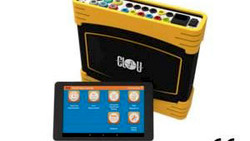The adoption of smart meters stagnated for years. The German government is now attempting a fresh start, a tried-and-true strategy when things in the digital world become stuck.
While the rest of Europe has completed or is about to complete its wide rollout of smart meters, Germany is nearly a decade behind.

Many things have grown simpler as a result of digitization. There are various conferences when no one needs to leave the house. This newspaper can be viewed the night before on tablets or mobiles. Almost any product is now available at any time thanks to the Internet.
Such digitization would be impossible without electricity – and there is no sign of digitalization.
As a result, the German government is now attempting to do what it does when things get stuck in the digital world: make a fresh start. Recently, the cabinet accepted the draft bill "to restart the digitalization of the energy transition". Finally, intelligent electricity meters are about to become widely available, potentially benefiting millions of families.
Until now, most customers have had to rely on technology from the early twentieth century, known as the Ferraris meter. They simply measure kilowatt hours (kWh). Digital meters are already implemented for bulk consumers. They just present the measurement on a display.
The future begins when these meters may interface with network operators or gadgets – via so-called "smart meter gateways". If it were up to the government, they should prevail by 2030.
What makes the rollout so complicated?
Germany agreed in 2012 to create meter connection via a gateway solution. It was known as MS2020 at the time (MS stands for measurement system).
The German government approved a nationwide smart meter rollout in early 2020, but it was halted before it could begin. According to statistics, smart meter penetration in Germany is around 1%. (End 2022).
A smart meter gateway is a connecting device that has been certified by the German Federal Office for Information Security (BSI) and serves as an information interface between the energy provider and the consumer. A smart meter gateway may communicate with digital meters in the home (such as a digital electricity meter), energy systems in the home (such as a solar system on the roof), and external energy providers such as the electricity provider. For security reasons, data exchange via a smart meter gateway is always encrypted.
Because this gateway approach is unique in the globe, there is no opportunity to learn from other countries or solutions that have already been implemented. Standards have been created and frequently revised as a result of disagreements between manufacturers, providing utilities, BSI, and other parties concerned. A thousand formalities have prevented the breakthrough. Although there has been a "Law on the Digitization of the Energy Transition" since 2016. But especially around the gateways, it built up more hurdles than it removed elsewhere. The Federal Office for Information Security had to certify them.
However, at least three companies had to offer such measuring systems independently of each other. This finding alone became a Sisyphean task for the authority. Crazy requirements for shipping made it difficult to send modern meters at all. In the end, the smart meters were only installed where it was not possible without them. But not among the broad mass of households. Finally, in May 2022, the BSI has revoked the market availability declaration.
What happens now?
A restart should now ensure a mass rollout. For example, the law provides for an "agile rollout": This means that certified devices can already be installed, even if they do not yet master all conceivable functions. This will be done later by software updates. Over time, more and more smart meters are to become mandatory, initially for consumers with electricity consumption of more than 100,000 kWh per year, such as commercial enterprises. This is followed by consumers with more than 6000 kWh – such annual consumption is already achieved by those who regularly charge an electric vehicle or operate a heat pump. Even those who generate electricity themselves, for example via a solar system with an output of more than 7 kW, will sooner or later have to measure smart.
This has advantages for both sides, for electricity customers and grid operators. The latter can more easily reconcile the supply and demand of electricity and have a better overview of what is going on where in their power grid. And electricity customers can benefit from variable tariffs. In some hours of the day, electricity becomes much cheaper for them, in others more expensive. If you can adjust your consumption to it, you really save money.
Every electricity supplier should have to offer a dynamic tariff.
Fluctuations in the price of electricity
Such fluctuations in the price of electricity already exist. If, for example, the wind blows properly or the sun shines, the wholesale electricity price drops. However, the vast majority of consumers do not notice this, their contracts are as flexible as a Ferraris meter – basically not at all. From 2025, according to the law, every supplier will have to offer a dynamic tariff. And every electricity customer should also be able to benefit from a smart meter, even if his household consumes less than 6,000 kWh/year – and that within four months of commissioning. According to the draft law, intelligent measurement must not cost more than 20 € per year.
The general utility opinion is, that the government must make improvements. The law is due to enter into force in the spring 2023.
Takeaway
To put it mildly, the original rollout strategy was poor.
We continue to follow up this unique approach and rely on globally proven technologies such as the DLMS protocol in conjunction with radio-frequency (RF) and power line communication, such as G3-PLC, for broad roll-outs.
For further information, please contact us.
Editor's note: This article was originally published in January 2023 and has been updated for comprehensiveness.





All comments are moderated before being published. Inappropriate or off-topic comments may not be approved.